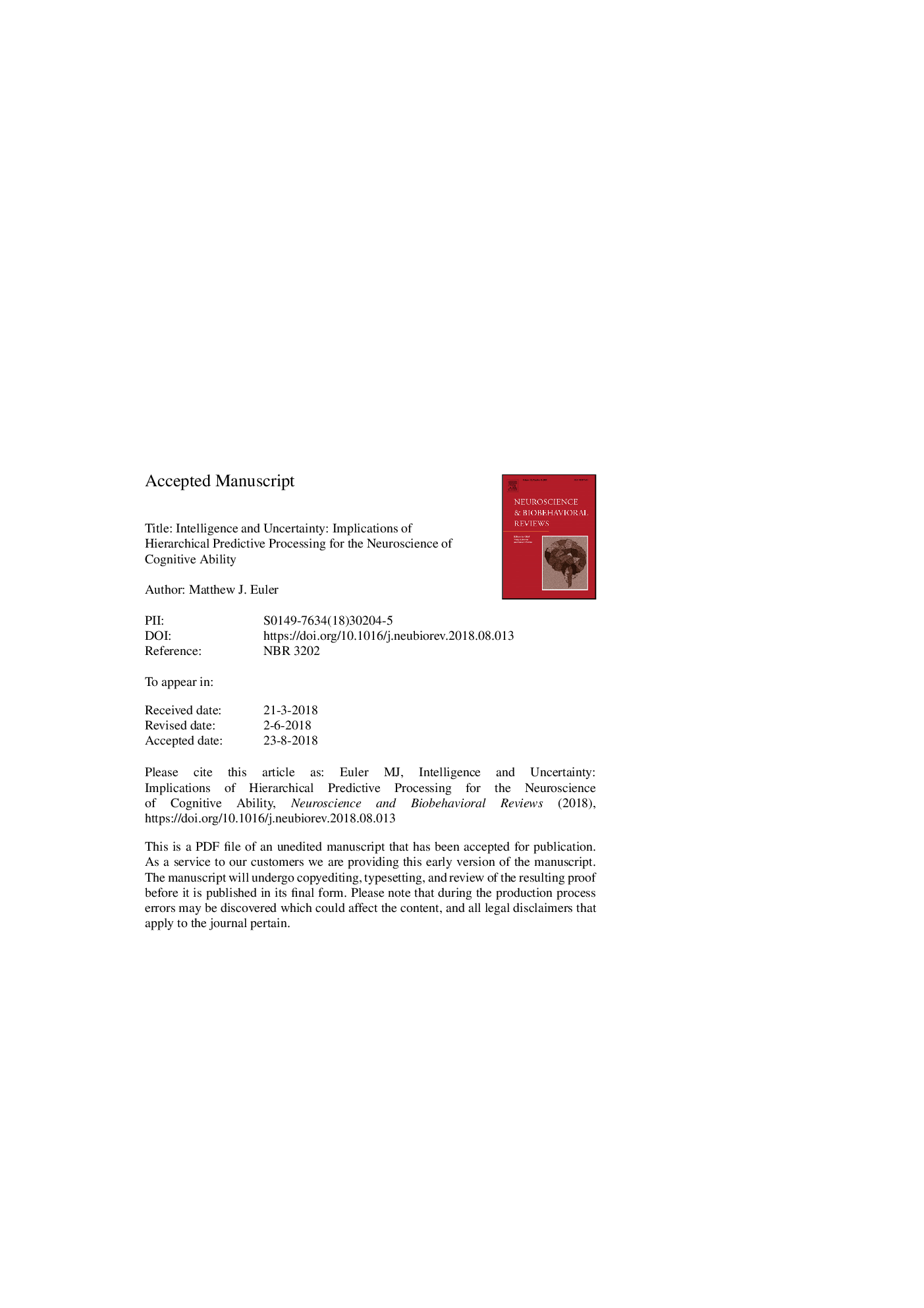| Article ID | Journal | Published Year | Pages | File Type |
|---|---|---|---|---|
| 10134441 | Neuroscience & Biobehavioral Reviews | 2018 | 81 Pages |
Abstract
Hierarchical predictive processing (PP) has recently emerged as a candidate theoretical paradigm for neurobehavioral research. To date, PP has found support through its success in offering compelling explanations for a number of perceptual, cognitive, and psychiatric phenomena, as well as from accumulating neurophysiological evidence. However, its implications for understanding intelligence and its neural basis have received relatively little attention. The present review outlines the key tenets and evidence for PP, and assesses its implications for intelligence research. It is argued that PP suggests indeterminacy as a unifying principle from which to investigate the cognitive hierarchy and brain-ability correlations. The resulting framework not only accommodates prominent psychometric models of intelligence, but also incorporates key findings from neuroanatomical and functional activation research, and motivates new predictions via the mechanisms of prediction-error minimization. Because PP also suggests unique neural signatures of experience-dependent activity, it may also help clarify environmental contributions to intellectual development. It is concluded that PP represents a plausible, integrative framework that could enhance progress in the neuroscience of intelligence.
Related Topics
Life Sciences
Neuroscience
Behavioral Neuroscience
Authors
Matthew J. Euler,
